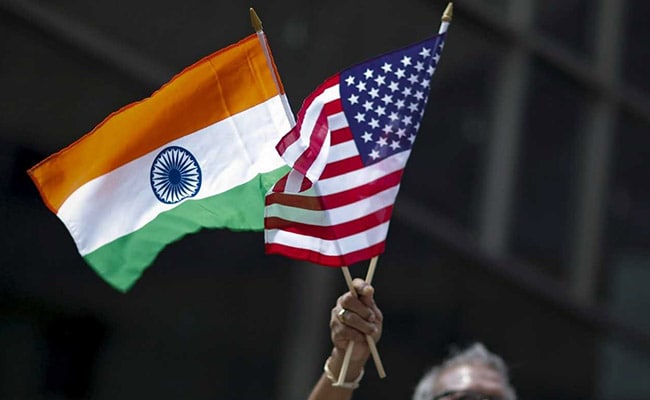
Manila expanded the scope of the 2014 agreement to allow U.S. troops access to four additional military bases.
Manila:
Philippine President Ferdinand Marcos said on Monday that the United States would not be allowed access to more Philippine military bases.
Marcos’ comments came just days after a trilateral summit between the United States, Japan and the Philippines in Washington that focused on the disputed South China Sea, which is almost entirely claimed by Beijing.
The Philippines is a focus of U.S. efforts to strengthen regional alliances because of its proximity to waterways and self-ruled Taiwan, which is claimed by China.
Manila last year expanded the scope of the 2014 agreement to allow U.S. troops access to four more military bases in the country, bringing the total to nine.
The Enhanced Defense Cooperation Agreement (EDCA) allows the U.S. military to rotate and store defense equipment and supplies. This angered Beijing.
“The answer is no. The Philippines has no plans to open or build more EDCA bases,” Marcos said in response to an AFP question about whether there would be more EDCA bases.
Marcos was speaking at a forum held by the Foreign Correspondents Association of the Philippines that was attended by senior Philippine military officials and foreign diplomats.
U.S. President Joe Biden reiterated at last week’s trilateral meeting that Washington’s commitment to defending its treaty ally Manila is “ironclad.”
Although the two countries have a complicated history and have had ups and downs in relations in recent years, the two countries are still bound by the 1951 Mutual Defense Treaty.
Numerous skirmishes between Philippine and Chinese vessels in the South China Sea in recent months have included collisions and the use of water cannons by Chinese vessels against Philippine vessels, injuring Philippine troops and fueling speculation about what actions would trigger the treaty.
Senior Biden administration officials have repeatedly said that an “armed attack” on public Philippine vessels, aircraft, armed forces or coast guard anywhere in the South China Sea would invoke the treaty.
Marcos said on Monday that U.S. Defense Secretary Lloyd Austin had pledged to invoke the treaty if another “foreign power” killed a Filipino soldier.
The expansion of EDCA last year comes as the two countries seek to repair relations that have been strained in recent years.
Former Philippine President Rodrigo Duterte was more supportive of China than the country’s former colonial ruler, but the Marcos government has been keen to reverse that.
Beijing’s increasingly assertive claims over nearly the entire South China Sea and Taiwan have provided new impetus for Washington and Manila to strengthen their partnership.
Given the Philippines’ proximity to Taiwan and its surrounding waters, the Philippines’ cooperation will be crucial in the event of a conflict with China.
Asked how a Republican administration under Donald Trump might affect the United States’ “ironclad” commitment to the Philippines, Marcos said the deal between Manila and Washington was “beyond politics” and almost a “treaty agreement,” Whoever is involved must comply. In power.
Marcos also said talks with Japan on a defense pact that would allow the two countries’ troops to set foot on each other’s territory were “very close” to being concluded.
(Except for the headline, this story has not been edited by NDTV staff and is published from a syndicated feed.)






